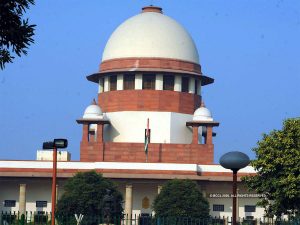Foreigners Tribunal:

The Supreme Court (SC) recently halted the deportation of a woman who was declared a foreigner by a Foreigners’ Tribunal in Assam
- Foreigners Tribunal (FT) came into existence through the Foreigners (Tribunals) Order, 1964, to let state administration (District Collector/District Magistrate) to make a reference about a person suspected to be a foreigner to the Tribunals.
- The Foreigners (Tribunals) Order, 1964, was enacted by the Central government through the use of powers granted under Section 3 of the Foreigners Act, 1946.
- The Foreigners (Tribunals) Order, 1964, applies to the whole of India, yet, FTs exist only in Assam as of now.
- In other states, if an illegal immigrant is found, he is produced before a local court and dealt with as per the Foreigners Act, 1946.
- Prior to the 2019 amendment to the Foreigners (Tribunals) Order, 1964, only the Centre was empowered to establish FTs in states, but after this amendment, the power has been granted to states as well.
- The superintendents of police (SPs) and district commissioners were empowered to detect suspected foreigners.
- References for these “suspected persons” were required to be made before an authority which came into existence through the Foreigners (Tribunals) Order, 1964.
- The Election Commission of India (ECI) can also refer cases of D or Doubtful voters to the local SP, who then refers them to a tribunal to verify their citizenship.
- The persons excluded from the final draft of the National Register of Citizens (NRC) as released in August 2019 can appeal before the FTs to prove their citizenship.




